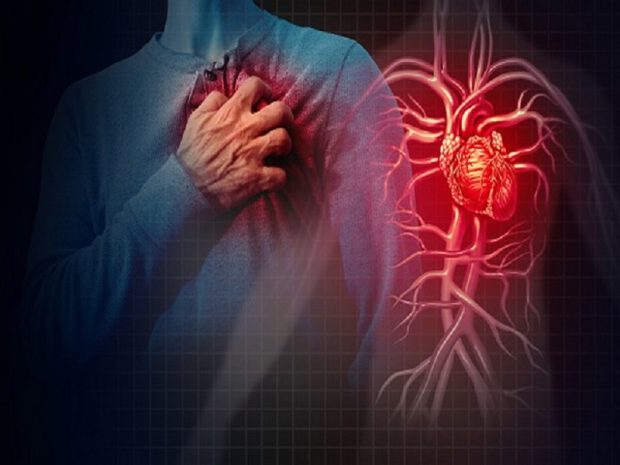
AI-derived digital marker to measure characteristics of heart disease in patients : Study
PTI, Dec 21, 2022, 12:14 PM IST

Representative Image (Source: ANI)
Washington DC: Scientists have constructed an in silico, or computer-derived, marker for coronary artery disease (CAD) to better measure clinically important characterizations of the disease, a new study has found.
Using machine learning and clinical data from electronic health records, the researchers at the Icahn School of Medicine at Mount Sinai in New York are the first ones to map characteristics of CAD on a spectrum. Previous studies have focused only on whether or not a patient has CAD, the study said.
CAD and other common conditions exist on a spectrum of disease; each individual’s mix of risk factors and disease processes determines where they fall on the spectrum. However, most such studies break this disease spectrum into rigid classes of case (patient has disease) or control (patient does not have disease). This may result in missed diagnoses, inappropriate management, and poorer clinical outcomes, said the investigators.
The findings, published in the journal The Lancet, are expected to lead to more targeted diagnosis and better disease management of CAD, the most common type of heart disease and a leading cause of death worldwide, the study said.
”The information gained from this non-invasive staging of disease could empower clinicians by more accurately assessing patient status and, therefore, inform the development of more targeted treatment plans,” said Ron Do, senior study author, Icahn School of Medicine.
”Our model delineates coronary artery disease patient populations on a disease spectrum; this could provide more insights into disease progression and how those affected will respond to treatment.
”Having the ability to reveal distinct gradations of disease risk, atherosclerosis, and survival, for example, which may otherwise be missed with a conventional binary framework, is critical,” said Do.
In the retrospective study, the researchers trained the machine learning model, named in silico score for coronary artery disease or ISCAD, to accurately measure CAD on a spectrum using more than 80,000 electronic health records from two large health system-based biobanks, the BioMe Biobank at the Mount Sinai Health System and the UK Biobank.
According to the study, the model, which the researchers termed a ”digital marker”, incorporated hundreds of different clinical features from the electronic health record, including vital signs, laboratory test results, medications, symptoms, and diagnoses, and compared it to both an existing clinical score for CAD, which uses only a small number of predetermined features, and a genetic score for CAD.
The 95,935 participants included participants of African, Hispanic/Latino, Asian, and European ethnicities, as well as a large share of women. Most clinical and machine learning studies on CAD have focused on white European ethnicity, the study said.
The investigators found that the probabilities from the model accurately tracked the degree of narrowing of coronary arteries (coronary stenosis), mortality, and complications such as heart attack, the study said.
”Machine learning models like this could also benefit the health care industry at large by designing clinical trials based on appropriate patient stratification. It may also lead to more efficient data-driven individualized therapeutic strategies,” said lead author Iain S. Forrest, Icahn Mount Sinai.
”Despite this progress, it is important to remember that physician and procedure-based diagnosis and management of coronary artery disease are not replaced by artificial intelligence, but rather potentially supported by ISCAD as another powerful tool in the clinician’s toolbox,” said Forrest.
Next, the investigators envision conducting a prospective large-scale study to further validate the clinical utility and actionability of ISCAD, including in other populations. They also plan to assess a more portable version of the model that can be used universally across health systems, the study said.
Udayavani is now on Telegram. Click here to join our channel and stay updated with the latest news.
Top News

Related Articles More

High nitrate levels in groundwater threaten public health in 440 districts: Report

Gujarat IMA opposes ‘mixopathy’ proposal; says it poses ‘severe risks’ to people’s health

Study links social inequality to dementia-related changes in brain
People single all their lives might have low life satisfaction: Study

Drinking tea, coffee linked to lower risk of head and neck cancer: Study
MUST WATCH
Latest Additions

No denying it: Smith ‘100%’ certain he got his hand under Kohli’s catch

Row over language leads to heated exchange

Geethartha Chinthane 144: No Other Authority Equal to the Vedas

Karnataka Govt orders probe into Smart City projects in 6 cities; sets 3-month deadline

Ahead of Trump’s inauguration, debate on H1B visas intensifies
Thanks for visiting Udayavani
You seem to have an Ad Blocker on.
To continue reading, please turn it off or whitelist Udayavani.





















